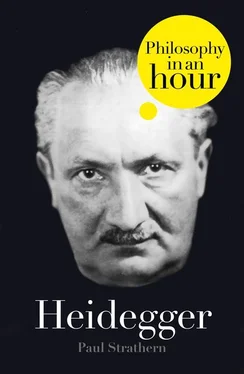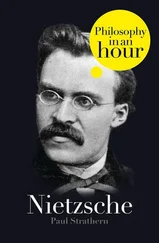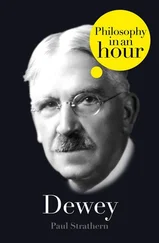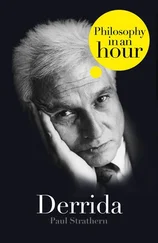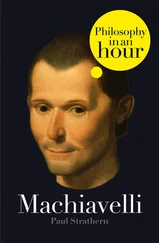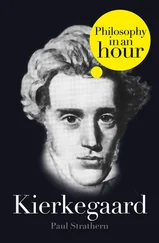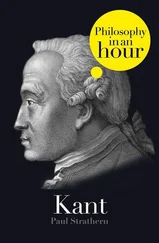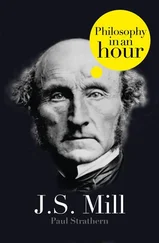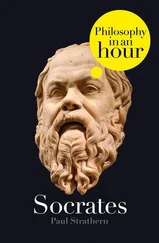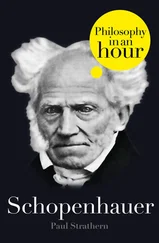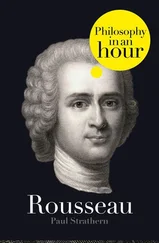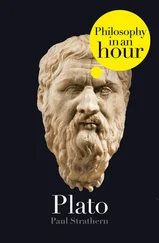Heidegger
PHILOSOPHY IN AN HOUR
Paul Strathern

Cover
Title Page Heidegger PHILOSOPHY IN AN HOUR Paul Strathern
Introduction Introduction Heidegger may have been the most controversial philosopher of the twentieth century. During the first half of that century the course of philosophy diverged as never before. There became, in fact, two philosophical traditions. These proved so incompatible that no discourse was possible between them. One regarded the other as sheer nonsense. The other regarded the former as having entirely missed the point of philosophy. Any reconciliation was out of the question. On the one hand was the philosophy of linguistic analysis, which derived largely from Wittgenstein. As its name suggests, this philosophy required extreme rigour in the use of words. Philosophical problems were deemed to arise from the misapplication of words. In such cases, a word was used in a context to which it could not apply – which resulted in the ‘knot’ of a problem. As soon as the knot was untangled by suitable analysis, the problem simply vanished. For instance, take the question: ‘What is the meaning of existence?’ This was a question that simply could not be asked . And why not? Because to apply the term ‘meaning’ to the term ‘existence’ was invalid. For existence to have a meaning, this meaning would somehow have to exist above and beyond existence. But it is impossible for something to exist outside existence. Just as it is impossible for something to be red that is not red, true that is not true. Such analysis explains why there can be no answer to the question: ‘What is the meaning of existence?’ The other tradition of philosophy, which derived from Heidegger, was diametrically opposed to such analysis. Indeed, its fundamental question was: ‘What is being?’ In other words, ‘What does it mean to exist?’ or ‘What is the meaning of existence?’ For Heidegger and the existential tradition, this question could not simply be ‘analysed away’. Such questions were beyond the reach of logic or reason. They lay deeper. Our existence was fundamental: prior to rational thought or linguistic analysis. It was the primary ‘given’ of every individual life. In order to ask such questions about being, about existence, an entire new form of philosophy had to be developed. This was what Heidegger saw as his lifelong task.
Heidegger’s Life and Works
Further Information
Comments and Criticisms
Chronology of Significant Philosophical Dates
Chronology of Heidegger’s Life and Times
Recommended Reading
About the Author
Copyright
About the Publisher
Heidegger may have been the most controversial philosopher of the twentieth century. During the first half of that century the course of philosophy diverged as never before. There became, in fact, two philosophical traditions. These proved so incompatible that no discourse was possible between them. One regarded the other as sheer nonsense. The other regarded the former as having entirely missed the point of philosophy. Any reconciliation was out of the question.
On the one hand was the philosophy of linguistic analysis, which derived largely from Wittgenstein. As its name suggests, this philosophy required extreme rigour in the use of words. Philosophical problems were deemed to arise from the misapplication of words. In such cases, a word was used in a context to which it could not apply – which resulted in the ‘knot’ of a problem. As soon as the knot was untangled by suitable analysis, the problem simply vanished. For instance, take the question: ‘What is the meaning of existence?’ This was a question that simply could not be asked . And why not? Because to apply the term ‘meaning’ to the term ‘existence’ was invalid. For existence to have a meaning, this meaning would somehow have to exist above and beyond existence. But it is impossible for something to exist outside existence. Just as it is impossible for something to be red that is not red, true that is not true. Such analysis explains why there can be no answer to the question: ‘What is the meaning of existence?’
The other tradition of philosophy, which derived from Heidegger, was diametrically opposed to such analysis. Indeed, its fundamental question was: ‘What is being?’ In other words, ‘What does it mean to exist?’ or ‘What is the meaning of existence?’ For Heidegger and the existential tradition, this question could not simply be ‘analysed away’. Such questions were beyond the reach of logic or reason. They lay deeper. Our existence was fundamental: prior to rational thought or linguistic analysis. It was the primary ‘given’ of every individual life.
In order to ask such questions about being, about existence, an entire new form of philosophy had to be developed. This was what Heidegger saw as his lifelong task.
Heidegger’s Life and Works
Martin Heidegger was born on September 26, 1889, in the south German mountain village of Messkirch, just a dozen miles north of Lake Constance and the border with Switzerland. This was a pious rural area, where little had changed for centuries. Heidegger came from a background of small farmers and craftsmen. His father was a master cooper and sexton of the local Catholic church, his mother a farmer’s daughter from a neighbouring village. Martin showed an early interest in religion and seemed destined to join the priesthood. After high school he became a Jesuit novice, going to Freiburg University on a church scholarship in 1909 to study theology. But soon it became clear to him that his main interest was in philosophy, and after two years he switched to this subject. This was a brave decision, as it meant that he lost his church scholarship. But it was already evident to the university authorities that he had exceptional talent. He was given a small grant, which he supplemented by private tutoring.
In Heidegger’s school years there are no tales of escapades or the usual scrapes in which students become involved. Young Martin was intensely preoccupied with spiritual-philosophical questions. The earnest country boy was deeply unsettled by the manifestations of the modern urban world that he encountered in Freiburg. This may have been an out-of-the way provincial city, but the nearby Black Forest attracted a constant stream of cosmopolitan tourists. The citizens and students of Freiburg prided themselves on keeping up with the latest intellectual and social trends which were sweeping Germany. During the 1890s and 1900s the country was undergoing an astonishing transformation into a major industrial power. When German unification culminated in the founding of the German Empire in 1871, 70 percent of its population had been living on the land; by 1910 this had fallen to 40 percent. The old traditional rural Germany in which Heidegger had grown up had remained largely undisturbed since medieval times. Now it was giving way to modern cities where automobiles, electrification, and heavy industry prevailed. All aspects of Western culture were becoming urbanised.
Philosophy too was undergoing an analogous crisis. Since the beginning of the nineteenth century, Germany had prided itself on providing the leading European philosophers, such as Kant and Hegel. They had produced all-embracing metaphysical systems which explained the world and everything in it, including humanity. In many ways these systems had begun to take the place of God. (It was Hegel, not Nietzsche, who first pronounced ‘God is dead’.) Such systems were a way of viewing how the world worked. They were grounded in metaphysics – that is, in beliefs and assumptions that lay beyond our experience of the physical world. (Metaphysics literally means ‘beyond physics’.) But the tradition of grand and immensely serious metaphysical systems like those conceived by Kant, Hegel, and even Schopenhauer had come to an end. Gleefully Nietzsche had exploded this inflated tradition of systematic philosophy with pinpricks of epigrammatic wit before scandalously dying of syphilitic insanity in 1900. For Hegel, ‘God is dead’ had been an insight; for Nietzsche it was the basis of his entire philosophy.
Читать дальше
